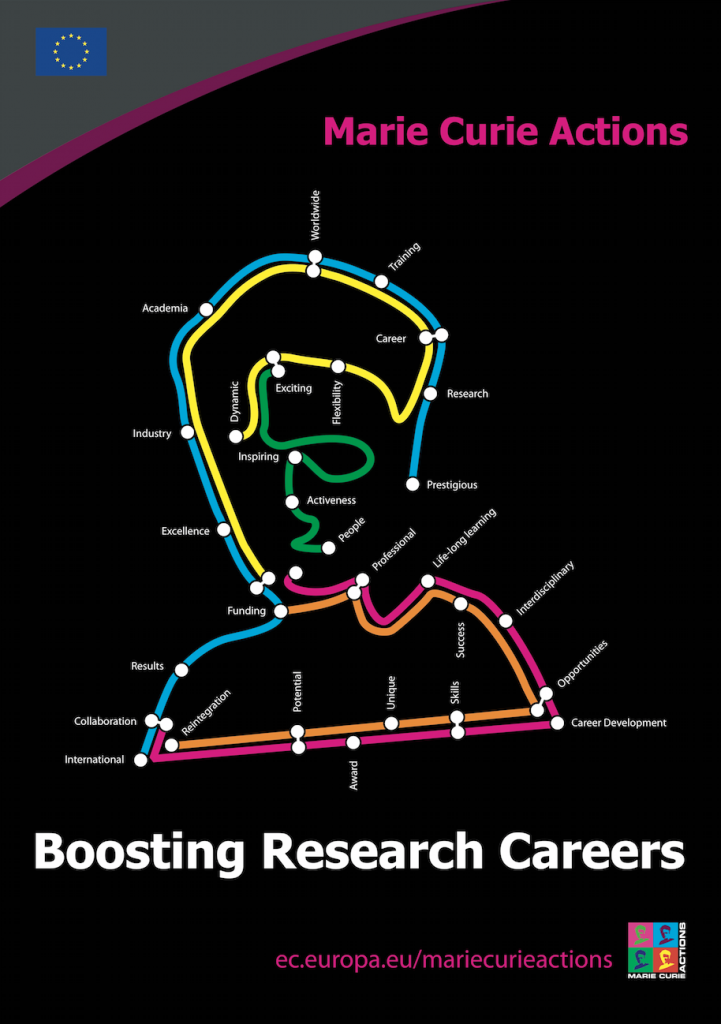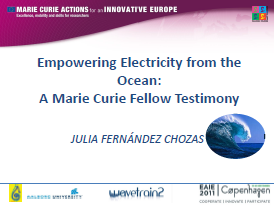The Wavetrain2 project continued the research carried on by the previous project Wavetrain. The Wavetrain2 project was a multinational Initial Training Network (ITN) funded under the FP7-People program, in order to face the wide range of challenges that industrial-scale wave energy implementation faces in the near future.
It ran from beginning 2009 to July 2012, focusing on:
- Hydrodynamic design.
- PTO (Power Take-Off) design.
- Instrumentation.
- Energy storage.
- Cost reductions.
- Paths to successful deployments.
- Legal issues: licensing, conflicts of use, EIA procedures, grid connection, regional differences, etc.
- Socio-economic benefits of the sector.
The Wavetrain2 project was presented at the 2011 Conference of the European Association for International Education (EAIE), following an invitation from the European Commission. The presentation was made by Wavetrain2 fellow Julia Fernández Chozas and her supervisor Hans Christian Sorensen, from SPOK.
A presentation of the Wavetrain2 project can be found here.
The Wavetrain2 network consisted of 13 European partner institutions and 17 associated entities, from research units and device developers to project developers and consultants:
1 – Wave Energy Centre – Centro de Energia das Ondas (WavEC – Portugal)
2 – Instituto Superior Técnico (IST – Portugal)
3 – Queen’s University Belfast (QUB – United Kingdom)
4 – The University of Edingurgh (UEDIN– United Kingdom)
5 – Wave Dragon Ltd. (WD– United Kingdom)
6 – Aalborg Universiteit (AAU – Denmark)
7 – SPOK APS (SPOK – Denmark)
8 – Tecbhische Universiteir (TUDelft – The Netherlands)
9 – AWS Ocean Energy Ltd (AWS – United Kingdom)
10 – Ecole Centrale de Nantes (ECN – France)
11 – University College Cork (UCC_HMRC – Ireland)
12 – Norges Teknisk – Naturvitenskapelige (NTNU – Norway)
13 – Fundacion Robotiker / Tecnalia (TEC– Spain)

